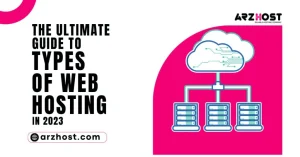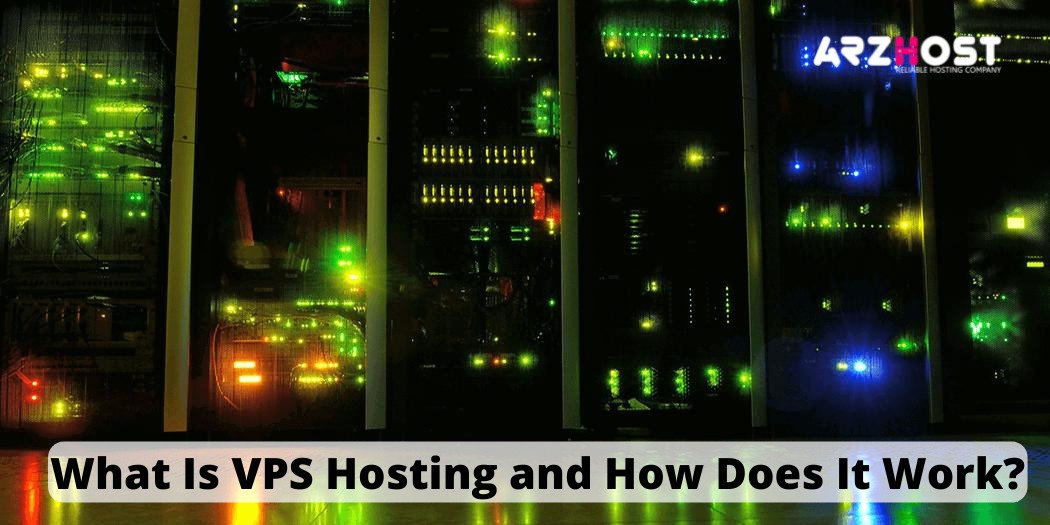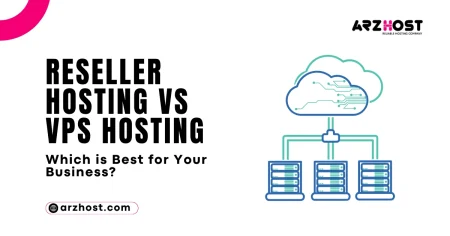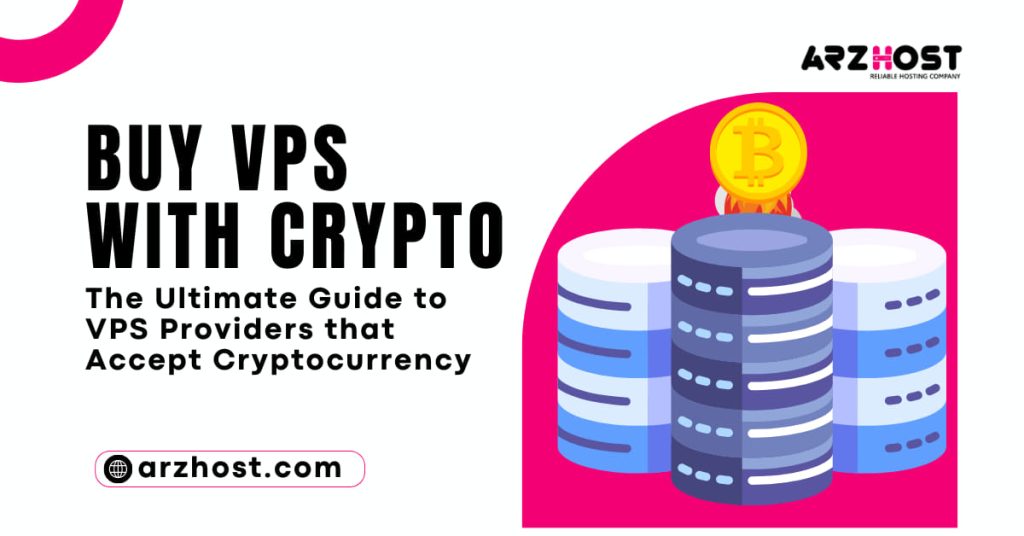Why Choose VPS or Virtual Private Server hosting? Firstly, buy the best vps server from Arzhost with reasonable price and supra dynamic features for your business website. we discuss about VPS and benefits in this article. VPS means “Virtual Private Server” but before delving into that term, it’s important to understand the basic of what is virtual private server.
Now we see the benefits of vps according to your demands. The term VPS refers to a virtual private server. That may not make sense right now, but it will in a minute.
The virtual component of VPS hosting is its most prominent characteristic. It makes use of virtualization technology to create a virtual server on top of a physical server. So, you have a single physical server that is partitioned into several virtual servers.
These virtual servers are completely independent of one another. They each have their own server with dedicated resources. So, even if you’re on the same physical server as other websites, you won’t have to share your RAM, CPU, or storage.
What Is VPS Hosting and How Does It Work?
The virtual server environment of VPS hosting is similar to that of a typical physical server. The physical server is partitioned into many virtual servers using virtualization technologies (described above).
Each partition functions as a virtual server, allowing each user to install their own operating system, software, and other applications. In the same way as you would with a typical dedicated server. This partitioning method is akin to partitioning your computer to run several operating systems, such as Windows and Mac. Each operating system runs in its own container, apart from the others.
Although a VPS server is virtual, it functions similarly to a physical server. As a result, you don’t have to be concerned about other websites interfering with yours. When you host your website on a VPS, you get a guaranteed amount of server resources that you won’t have to share with other users.
VPS Hosting Advantages
Why Choose VPS or Virtual Private Server hosting? A number of the advantages of VPS hosting have already been mentioned. But now it’s time to dive into the specific advantages that VPS hosting will provide to your website.
The following are the most major advantages of VPS hosting:
1: Increased Efficiency
As your site increases in size and popularity, so does the amount of traffic it receives. You’ll need a web host that can accommodate your website. No matter how much traffic your site receives, you’ll want lightning-fast loading times.
First and foremost, congratulations if your site’s traffic has been increasing. Second, you must select a hosting package that is appropriate for your website at this moment and in the future.
A virtual private server (VPS) plan might be exactly what you’re looking for. With VPS hosting, you’ll have additional server resources at your disposal, allowing you to handle more traffic while keeping your website fast.
2: Greater Bandwidth and Storage
You’ll have access to a lot of storage and bandwidth with VPS hosting. This will aid in improving both performance (as previously noted) and dependability (mentioned below).
If you’re coming from a shared hosting plan, the quantity of server space you’ll get will astound you. The high levels of bandwidth can handle extremely high traffic volumes without a hitch.
This additional space and bandwidth may accommodate sites with hundreds of blog posts, multimedia-rich websites, and much more.
Here’s a quick rundown of the RAM, CPU, disc space, and bandwidth available on Arzhost’s VPS services.
3: Reliability at a higher level
When you’re just starting started online, shared hosting can be a terrific option. However, due to the large number of websites jammed into a single shared server, you may eventually experience downtime.
Although today’s shared servers have solved many of the problems in the past. If you want high uptime and performance, it’s still not the greatest option.
You are the only website accessing the server’s resources when you use a VPS. As a result, the only downtime concerns you’ll have been if you choose a low-quality hosting provider or go over your plan’s current resources.
4: Customization and control of the server
Most VPS hosting options give you more control and flexibility over your server. If you need a custom operating system or a server configuration that isn’t supported by a shared hosting package, a VPS can be the best option.
You also receive root access to the server (equivalent to dedicated hosting), so you may start from scratch and customize it to your website’s exact specifications. This is a must-have for websites that require specialized software or server configurations.
Some types of websites, such as eCommerce sites, may benefit from having VPS hosting from the start. Many eCommerce sites utilize software or need more stringent security standards, which may or may not be compatible.
VPS hosting ensures that you can customize your hosting setup to perfectly match your website’s unique requirements.
5: Scalability of your server setup
The scalability of VPS hosting is also impressive. If your site’s traffic is increasing, you can count on VPS hosting to keep up. When compared to other types of hosting, such as shared hosting, you’ll have to upgrade to a different type of hosting if you hit the limits of your plan.
With VPS hosting, adding more resources to your server is as simple as clicking a button. It’s also simpler to scale up and down your server resources. As a result, you can scale up when running a campaign or during the busy holiday season, and then scale down when traffic levels return to normal.
If you have flexible traffic levels, of a website whose traffic continues to grow, then VPS hosting might be your best play.
6: When compared to a dedicated server, it is less expensive
Dedicated hosting is often among the most expensive types of hosting, making it out of reach for many website owners. VPS hosting, on the other hand, can provide you with the same level of functionality without the significant financial outlay.
You may not be able to get a larger server, but for most website owners, this will suit. You pay for the entire server with dedicated hosting, regardless of how much of the server’s resources you’re currently using.
However, with VPS hosting, you have more control over the server’s resources, so you’ll only pay for the ones you’re utilizing right now. This makes it more cost-effective than dedicated hosting, even beyond the initial monthly price point.
7: Have a tech team that knows what they’re doing
Using a VPS server to host your website is a little more technical. It’s a step up from shared hosting, which is really simple to handle. If you have a server problem or your site goes down for no apparent reason, you’ll want to be sure you have access to a competent support crew.
The majority of VPS hosting providers will have a technical support team available to help you. Some providers, on the other hand, provide extensive technical support exclusively for their VPS customers. It can be beneficial to have a support staff to rely on when you need it the most, regardless of your technical proficiency.
8: Security on High Alert
You’ll have stronger levels of protection straight out of the gate because you’ll be the only website employing a single physical server. And that’s only the start. You’ll also be able to add custom security software, firewalls, and any other security features you choose to convert your website into a fortress.
VPS hosting is well-known for its increased security. It’s usually comparable to dedicated hosting, which can provide some of the most secure hosting available.
Of course, how safe your website is having a lot to do with how secure your website is. So, even if your host is really secure, you’ll need to follow website security best practices.
Is VPS the best option for me?
When consumers outgrow their shared hosting plans, they typically move to VPS hosting. This type of hosting allows you more control over your hosting environment, as well as additional storage and bandwidth on the server. With this, you can easily support larger sites with huge visitor counts.
Some website owners, on the other hand, may require VPS hosting from the outset. If you’re running an eCommerce site or one that requires higher levels of protection, for example, it’s a good idea to start with VPS hosting right away.
However, the majority of website owners will eventually upgrade to VPS hosting. It’s time to upgrade when you’ve surpassed the boundaries of shared hosting and are seeing a drop in performance. Unless you have the budget and need for a dedicated server, VPS will probably be your best option.
Why Choose Arzhost only?
Hopefully, you now have a thorough grasp of VPS hosting and the advantages it may bring your website, allowing you to make an informed decision about whether or not this type of hosting is right for you.
Overall, Arzhost is a good pick for novices because it includes everything you’ll need to get started with WordPress, from a free domain name and automated WordPress installation to a free drag-and-drop website builder and detailed step-by-step instructions.
Why Choose VPS or Virtual Private Server hosting? Because of how simple it is to set up and utilize Arzhost’s services, it is a perennial favorite for personal and business web hosting. Arzhost, like Arzhost, provides low-cost web hosting for small businesses that require both simple and complex e-commerce sites.













